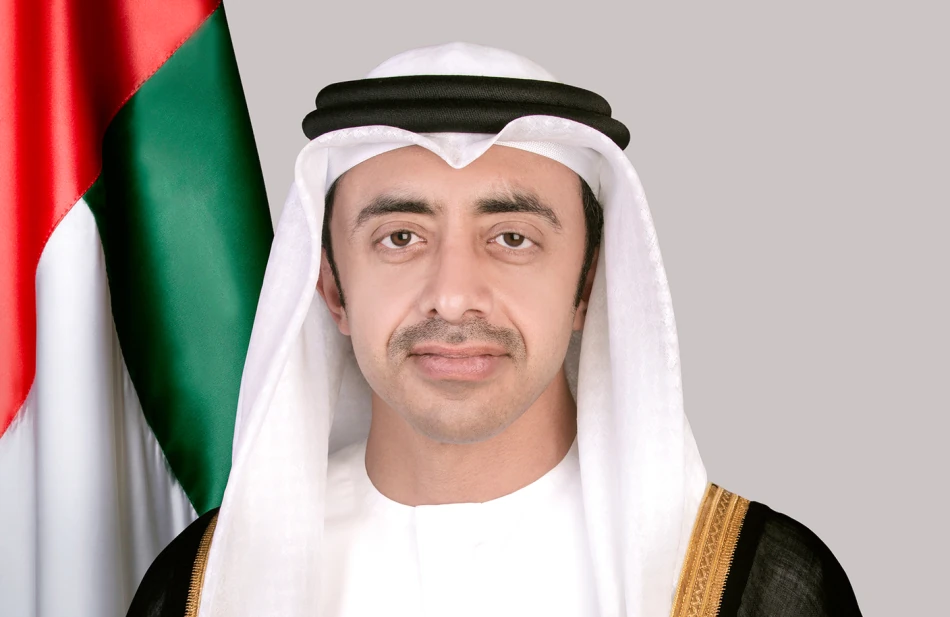
UAE to Immediately Resume Aerial Drops Delivering Aid to Gaza
UAE Escalates Gaza Aid Operations as Humanitarian Crisis Reaches Critical Point
The United Arab Emirates is intensifying its humanitarian response to Gaza's deteriorating crisis, with Foreign Minister Sheikh Abdullah bin Zayed Al Nahyan announcing the immediate resumption of airdrops and expanded multi-channel aid delivery. The move positions the UAE as a leading force in international relief efforts while the humanitarian situation reaches what officials describe as an "unprecedented critical stage."
Multi-Modal Aid Strategy Reflects Operational Urgency
Sheikh Abdullah's announcement via social media platform X outlined a comprehensive delivery approach utilizing land, air, and sea routes—a strategy that signals both the severity of Gaza's needs and the UAE's commitment to maintaining aid flows despite logistical challenges. The immediate resumption of airdrops suggests previous operations may have been temporarily suspended, though the reasons remain unclear.
This multi-channel approach mirrors successful humanitarian operations the UAE has conducted in other crisis zones, including Afghanistan and Syria, where the country established itself as a reliable aid provider capable of navigating complex geopolitical environments.
UAE's Strategic Humanitarian Diplomacy
Regional Leadership Through Aid
The UAE's prominent role in Gaza relief efforts reflects a broader strategy of humanitarian diplomacy that has characterized the country's foreign policy over the past decade. Unlike traditional diplomatic channels that often stall during conflicts, humanitarian aid allows the UAE to maintain influence and demonstrate leadership while avoiding direct political entanglement.
This approach has proven effective in other regional crises, where UAE aid operations have often outlasted political initiatives and maintained the country's presence in post-conflict reconstruction efforts.
Operational Advantages
The UAE's geographic position, advanced logistics infrastructure, and established relationships with international aid organizations provide significant operational advantages in crisis response. The country's experience in managing complex supply chains through its major ports and airports translates directly into humanitarian logistics capabilities.
Implications for Regional Dynamics
The UAE's leading role in Gaza aid operations carries broader implications for Middle Eastern geopolitics. By positioning itself as the primary Arab state driving international relief efforts, the UAE reinforces its status as a regional power capable of independent action while maintaining relationships across traditional divides.
This humanitarian leadership also provides the UAE with valuable soft power assets that could prove crucial in any future peace negotiations or reconstruction efforts. Countries that establish themselves as reliable humanitarian partners during crises often find themselves well-positioned to participate in subsequent political and economic arrangements.
Challenges and Sustainability Questions
While the UAE's commitment appears robust, the sustainability of expanded aid operations depends on several factors beyond the country's control. Access routes, security conditions, and international coordination mechanisms all influence the effectiveness of humanitarian delivery systems.
The emphasis on airdrops, while demonstrating capability and commitment, also highlights the constraints facing ground-based delivery systems. Aerial delivery, though more secure, is significantly more expensive and less efficient for large-scale humanitarian needs.
The UAE's approach to the Gaza crisis demonstrates how middle powers can leverage humanitarian capabilities to maintain regional influence and international relevance during major conflicts, potentially establishing templates for future crisis responses in an increasingly multipolar world.
Most Viewed News

 Sara Khaled
Sara Khaled






